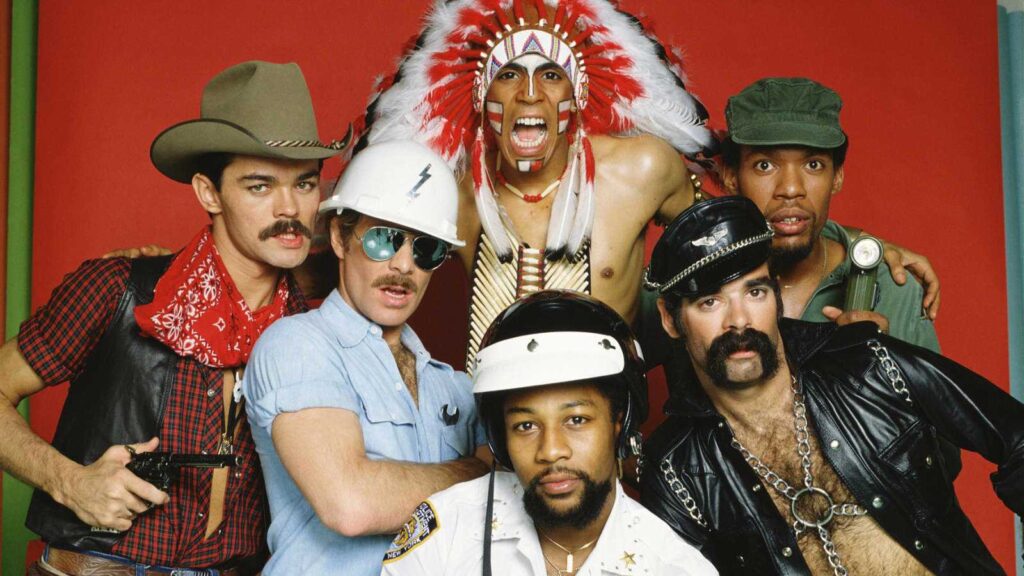“Y.M.C.A.” written by the Village People is a lively disco anthem celebrating community, connection, and the opportunities that find a home in the YMCA, imbued with words of a lively and catchy tune which spreads positivity regarding purpose, camaraderie, and a new lease on life.
YMCA Lyrics Meaning
Verse 1:
Young man, there’s no need to feel down
I said, young man, pick yourself off the ground
I said, young man, ’cause you’re in a new town
There’s no need to be unhappy
The beginning hints of a positive reassurance: the lyrics, directed at a “young man,” who might feel lost, alone, or discouraged, remind him he has “the power” to take charge of overcoming the problems. Moving to a new area might display a new chance that the song offers: “hey, be happy-it’s not so far away.”
Verse 2:
Young man, there’s a place you can go
I said, young man, when you’re short on your dough
You can stay there, and I’m sure you will find
Many ways to have a good time.
It sets the stage for the YMCA, a haven for people experiencing hardship-a platform for this young man to find safety, care, and friends. The line about “there are many ways to have fun” alludes to the YMCA being a beautiful place to cultivate enjoyment and find companionship.
Chorus:
It’s fun to stay at the Y.M.C.A.
It’s fun to stay at the Y.M.C.A.
They have everything for young men to enjoy.
You can hang out with all the boys.
The chorus forms the quintessence of the song, presenting a picture of fun in a vibrant community at the YMCA. It offers more than material resources; it’s also a place for socialization and friendships. The repetition of “Y.M.C.A.” gives rise to a cheerful texture and serves as a heartwarming invitation to those who wish to seek bigger and better things.
Verse 3:
Young man, are you listening to me?
I said, young man, what do you want to be?
I said, young man, you can make real your dreams,
But you’ve got to know this one thing.
This verse shifts focus to ambition and self-improvement. It encourages the listener to dream big and take charge of their future, reinforcing that the YMCA can provide guidance and tools to help achieve these goals.
Verse 4:
No man does it all by himself
I said, young man, put your pride on the shelf
And just go there, to the Y.M.C.A.
I’m sure they can help you today.
Here, the lyrics stress the importance of seeking help and support. The message is clear: it’s okay to rely on others when you’re struggling, and the YMCA is presented as a welcoming place ready to assist.
Verse 5:
Young man, I was once in your shoes,
I said, I was down and out with the blues
I felt, no man cared if I were alive
I felt the whole world was so jive.
This verse introduces a personal anecdote, making the advice relatable. The speaker reveals they once faced similar struggles, creating a connection with the listener. The mention of feeling invisible and disconnected adds depth to the song’s theme of overcoming adversity.
Verse 6:
That’s when someone came up to me and said
Young man, take a walk up the street
There’s a place there called the Y.M.C.A.
They can start you back on your way.
The turning point in the narrative arrives when the speaker finds guidance from someone who directs them to the YMCA. This moment highlights the transformative power of kindness and community, showing that even a simple recommendation can change someone’s life.
Chorus (Reprise):
The repeated chorus neatly sums up the festive mood and suggests that YMCAs are more than just a building; they’re a lifeline, a beacon of hope, and a fresh start.
Overall Meaning
Writers: Henri Belolo, Jacques Morali, Victor Edward Willis
Artist: Village People
Movie: Can’t Stop the Music
Genre: Disco
As the joyous anthem that it is, “Y.M.C.A.” is a review in itself of the Young Men’s Christian Association’s virtues in providing a refuge and asylum for those in need. The lyrics themselves refer to young men, but the ideas expressed resonate universally: community, self-love, and resilience.
In addition, it has become an LGBTQ+ cultural anthem, particularly among gay men, since historically, the YMCA was a safe haven where they could gather together and seek the company of others. The playful use of language and double entendre gives the song an added layer of queerness, helping it on its way to becoming a disco classic and a symbol of empowerment and celebration for marginalized people.
The YMCA represents hope and a promise that no one ever has to go it alone through life. This is an infectious anthem with a universally known message of empowerment and celebration.



![Daft Punk – Instant Crush Lyrics & Meaning [ft. Julian Casablancas]](https://lyrics-meaning.com/wp-content/uploads/2025/01/Instant-Crush-Lyrics-Meaning-1024x576.jpg)